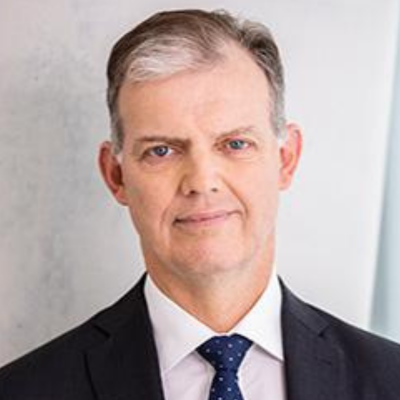
Glen Babington is UTS’s Chief Operating Officer and Vice-President (COO) and is responsible for leading this newly created portfolio which brings together finance, marketing/communications, property, IT, HR and legal functions as well as the data analytics and insights unit.
Glen is responsible for the university’s financial planning, infrastructure management, IT strategy and operations including digital transformation, data, workforce capability and workforce planning, as well as oversight and evaluation of UTS’s operations and performance.
He is responsible for enabling strategic and operational alignment and streamlining and improving services and processes across the university. A key aspect of this role is transforming internal service delivery, including developing an integrated services approach and operating model with a focus on continuing to improve service delivery

Session: Empowering Learners: Transformative AI in Primary Education
Laura Bain is the Head of Future Learning and Academic Operations at Matthew
Flinders Anglican College, where she leads the strategic direction for digital learning and academic innovation on the Primary Campus. With nearly 20 years of experience in education, Laura is passionate about harnessing technology's transformational potential in teaching, preparing students for the future of work and life. She holds a Master of Education and recognitions such as Apple Distinguished Educator and Microsoft Innovative Educator Expert Fellow. A TeachX Finalist for Excellence in Leadership and three-time member of The Educator Hot List in Australia, Laura has presented at national and international conferences on AI in education, design thinking, STEAM, and digital citizenship. Known as a changemaker and futurist, she champions curriculum innovation, technology-enhanced learning, and student empowerment.
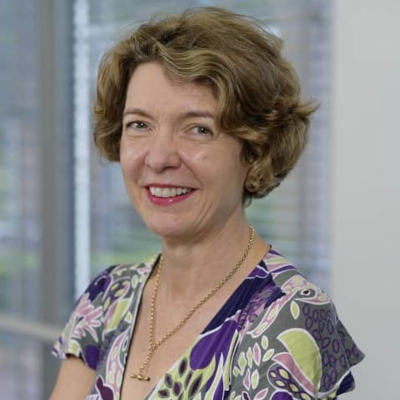

Session: PANEL DISCUSSION: How can generative AI be used to a better future of lifelong learning?
Professor Michael Blumenstein is currently the Pro Vice Chancellor (Business Creation and Major Facilities) at the University of Technology Sydney (UTS). Michael previously served as the Deputy Dean (Research and Innovation) in the Faculty of Engineering & IT at UTS and earlier held the positions of Associate Dean (Research Strategy and Management) and Head of the School of Software (now Computer Science). Previously, Professor Blumenstein worked at Griffith University in Queensland where he accumulated over a decade of experience in leadership roles including portfolio Dean (Research) of the Sciences Group and Head of the School of ICT.
Professor Blumenstein has served in numerous leadership roles with industry and professional associations over two decades, including most recently as a Board Member of the Internet of Things Alliance Australia (IoTAA). Previously he served as Vice President (Academic) of the Australian Computer Society (ACS), and prior to that as Director of Technical Advisory Boards. Professor Blumenstein was also elected onto and served as a member on the NSW Council of the Australian Information Industry Association (AIIA).
Prior to moving to NSW, he served as the Chair of the Queensland Branch of the Institute for Electrical and Electronic Engineers (IEEE) Computational Intelligence Society. He was also the Gold Coast Chapter Convener and a Board Member of the ACS Queensland Branch Executive Committee. He is a past Chairman of the IT Forum Gold Coast and a former Board Member of IT Queensland.
Michael has served on the Australian Research Council's (ARC) College of Experts on the Engineering, Mathematics and Informatics (EMI) panel. In addition, he also served on the Executive of the Australian Council of Deans of Information and Communication Technology (ACDICT).
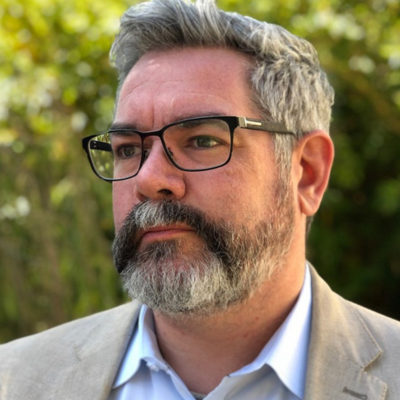
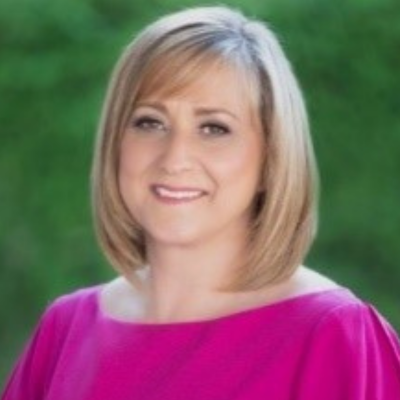
Jenni Butler has over 28 years’ experience in the Vocational Education and Training (VET) sector as an educator, senior manager, executive director, general manager and is currently the TAFE Queensland Chief Academic Officer.
Jenni is instrumental in shaping the organisation’s educational landscape. She is deeply passionate about the VET sector, understanding the transformative impact of training and skills on individuals, businesses, and communities.
Having lived and grown up in regional and remote Queensland, Jenni has a profound understanding of the skilling needs in these communities. Consequently, she is a strong advocate for VET in these areas, championing its importance and its power to change lives.
Jenni believes that AI at TAFE Queensland is about enhancing the educational experience, making learning more accessible, and preparing students for the future of work. She is also excited by how AI will enable Educators to integrate technologies more effectively into their teaching practices, giving them more time to invest in their professional development, support and mentor their students, and strengthen their networks with industry.
Jenni is also committed to developing her team, nurturing future leaders within the organisation so they may continue TAFE Queensland’s proud legacy in servicing the training needs of the state long into the future.

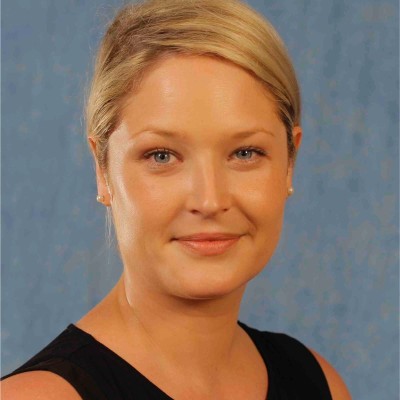

Session: Empowering K-12 Educators: Using AI to teach programming and robotics in STEM
Fiona Donnelly is the Deputy Principal and Leader of Innovation and Robotics at Granville Boys High School, with over a decade of experience creating engaging, technology-driven programs that inspire students' love for learning. At Granville Boys, she leads a team of teachers and students in pioneering interdisciplinary projects. Fiona is also an Education Mentor at Western Sydney University, where she collaborates with the Faculty of Education to support teachers in developing impactful educational projects for the Sydney Metro schools initiative. With a passion for STEM, STEAM, Visual Arts, History, leadership, and project-based learning, Fiona has earned numerous accolades, including the Minister's Award for Excellence in Teaching and the UTS Brennan Justice and Leadership Award.
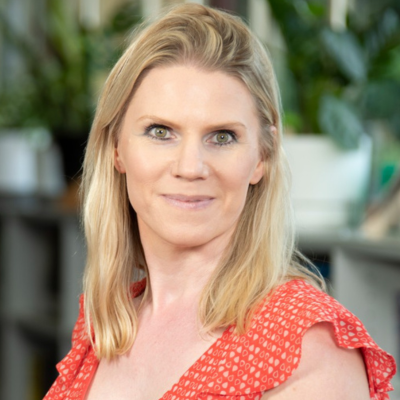
Dr. Bek Duyckers is an accomplished educational leader and innovator with a strong background in leveraging technology to enhance learning and foster global citizenship. Holding a PhD focused on international educational collaboration, she has coordinated impactful projects across Australia, Thailand, Spain, and beyond, empowering students through intercultural engagement. With extensive experience in educational strategy and innovation, she advocates for sustainable, future-focused practices that prepare students for a rapidly evolving world. Known for her commitment to ethical leadership, Dr. Duyckers brings insights on integrating technology in ways that enrich learning while supporting responsible and inclusive educational development.

Session: Opening remarks from the Chair
Session: Balancing customisation, personalisation and standardisation in the classroom
Ryan Elwell is passionate about uplifting and inspiring the education community. As Director of Digital Pedagogies and Online Safety Education, Ryan works closely with educators, parents, carers, school leaders, and students to drive positive change in the digital learning landscape. Although the title lacks the term “Human-Centred,” Ryan brings a strong focus on this approach to all his initiatives, ensuring that human values are embedded in every conversation and program.
A firm believer that technology should enhance rather than overshadow human expertise, Ryan emphasises that it’s people who are the real “rock stars” of education. Technology, he believes, serves best as a tool to amplify teachers' skills and bring out the best in students. By listening to educators and developing personalised support, Ryan ensures that edtech aligns with the genuine needs of schools and classrooms.
Ryan’s goal is to continually refine his work and contribute to a more supportive, human-centred education environment, encouraging individuals to shine—whether with technology or, when necessary, without it.
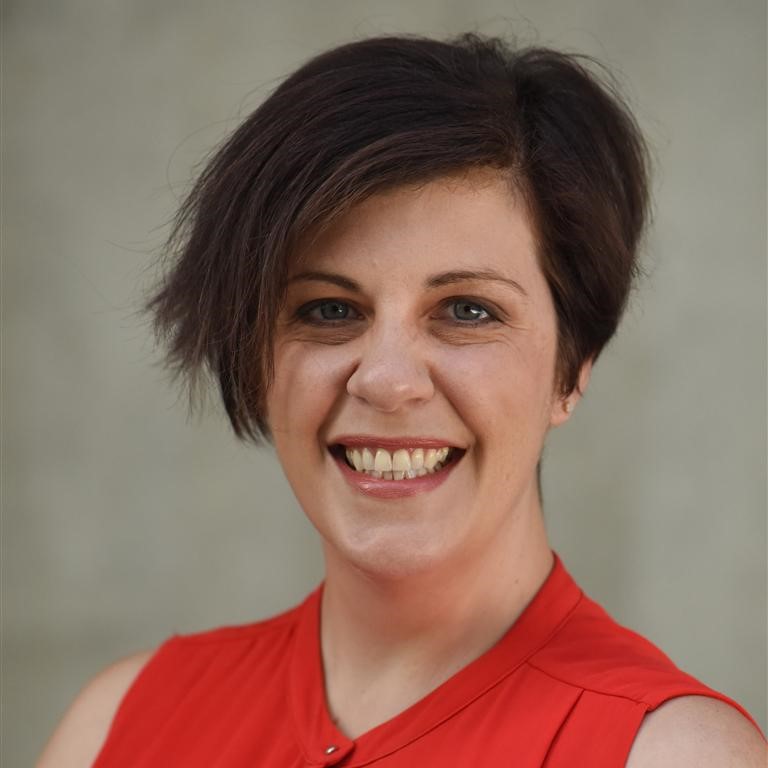
Sheridan’s current role at the UniSA is that of Director: Teaching Innovation Unit (TIU).
The TIU is a team of practiced academics and specialists in education design and technology. The team works in two main areas:
1. Research and development to lead best practice in higher education; and
2. Partner and support UniSA academics and external stakeholders to design and deliver an outstanding curriculum using relevant, effective teaching practices, technologies, and tools.
The Unit's vision is for all UniSA students to receive a quality education where discipline expertise is informed by student-centered pedagogies and contemporary higher education research. Passionate academics will deliver outstanding curricula supported by leading edge teaching technologies. We build capacity by recognising excellence and empowering academic staff to translate their discipline expertise into transformative learning experiences for our students, drawing on the latest in curriculum design and delivery, and technology.
Our services include Academic Development, Audio Visual and Multimedia, and Technology Enhanced Learning support. From videos and multimedia, to curriculum design, the TIU team can help you develop a transformative your curriculum to support all students.
Sheridan is intersted in exploring how learning and teaching tools and technology, through the use of learning analytics, can be used to improve the student experience and academic performance. The propensity of academic staff to use academic performance data as indicators of success is distal of earlier learning behaviours. Therefore, Sheridan is interested in exploring the impact that personalised feedback, using real-time data of online learning behaviour, has academic success. Specifically, her work focusses on exploring the learning and teaching experiences, and behaviours that encourage high achieving students and those of average achieving students, with an aim to better inform our teaching practices to encourage student learning cross all academic levels.
She has a Ph.D. in Physiology and a Graduate Diploma in Biostatistics.
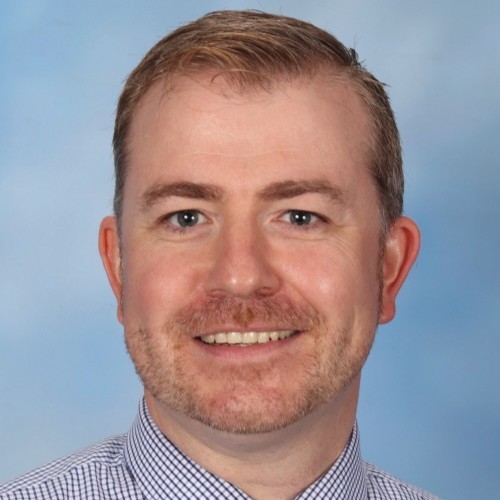
Darryl Hall is the IT Services Manager at Coomera Anglican College, where he plays a pivotal role in the development and integration of cutting-edge artificial intelligence technologies to enhance educational experiences and operational efficiency. With a keen focus on innovation, Darryl and the team at CAC has successfully implemented a private AI platform utilising ChatGPT, alongside smart LMS systems that leverage AI to help teachers create engaging lesson plans in seconds.
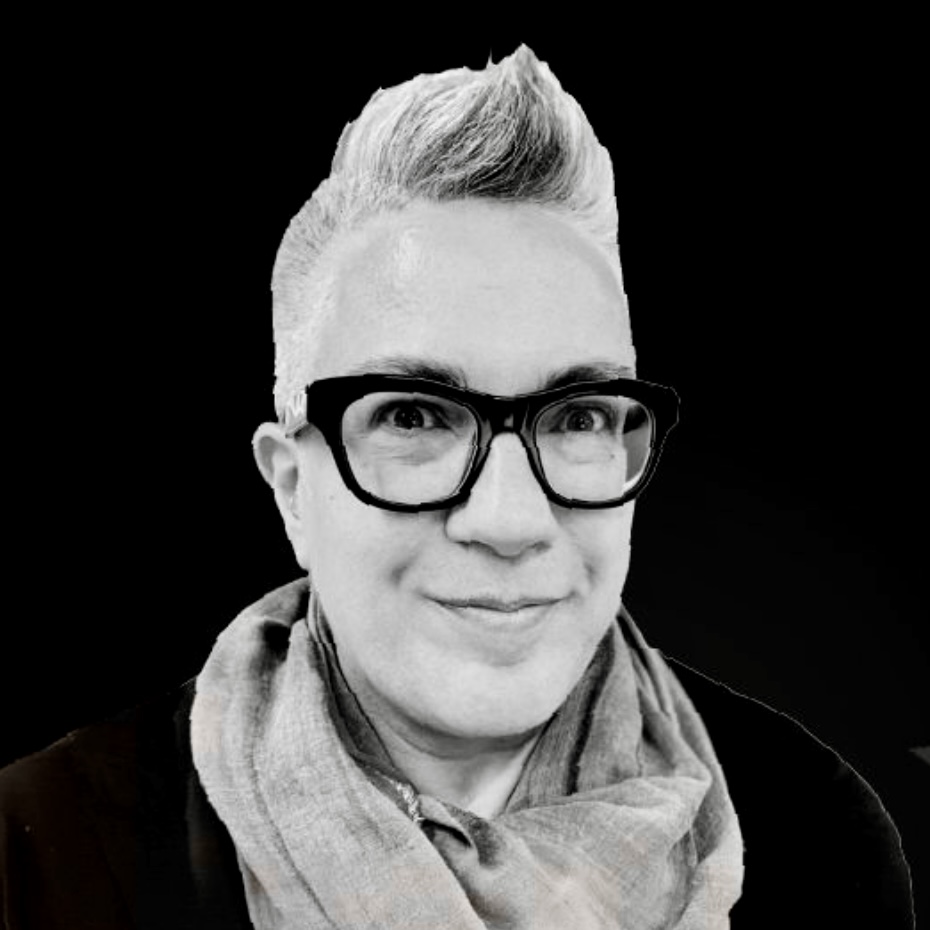
Sam is CEO at the Australian College of the Arts and believes education transforms hope into agency. They have fallen in love with Collarts, where creativity is vital, difference is powerful and stories change the world. Once in a while, Sam thinks about leaving the sector, but graduation still makes them cry: education has their heart.
Sam has served on Midsumma, Feast and NTAHC boards and currently volunteers for the Pinnacle Foundation, seeking out queer community. They’re grateful to live, love and work on unceded Wurundjeri land, treading softly as a sign of respect to Elders past and present.

Session: Creating dynamic learning pathways with adaptive curriculum design
Kimberley Law is a dedicated educator at the International Grammar School in Sydney, known for her commitment to creating engaging, interactive learning environments. With a passion for lifelong learning, Kimberley continuously adapts her teaching strategies to meet her students' evolving needs. By discovering her students' unique interests and integrating these insights into her lesson plans, she ensures a tailored approach that captivates and involves every student in the learning process. Kimberley's innovative methods and student-focused teaching philosophy reflect her belief that understanding each learner is key to fostering meaningful and effective education.
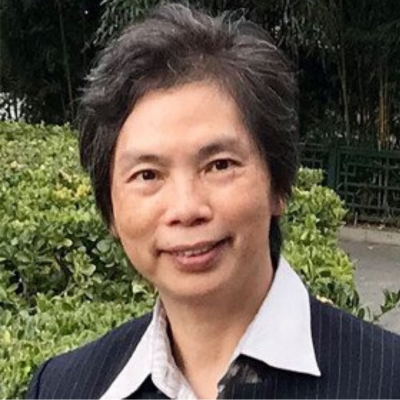
Session: PANEL DISCUSSION: How can generative AI be used to a better future of lifelong learning?
Professor Nancy Law is an internationally acclaimed expert in technology-driven educational innovation. Her work focuses on building human resource capacity for a society increasingly shaped by knowledge and ICT. She is highly regarded for her insights into policies and strategic leadership for integrating ICT in education, frequently delivering keynotes and consulting for organisations such as UNESCO, the European Commission, and Ministries of Education in Singapore and Malaysia. Professor Law has led numerous large-scale projects, including international studies on pedagogical innovations and ICT integration, ecological models for professional development, and collaborative learning technologies. Her work fosters sustainable educational transformation and supports curriculum innovation through ICT-enabled learning environments.
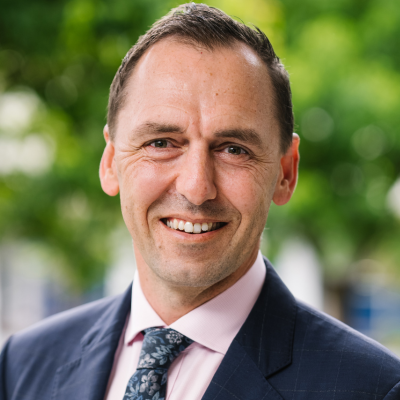
Session: Transforming language learning for young students
Mark is a teacher and educational leader from St Luke’s Grammar School. He is passionate about making learning meaningful and relevant to students through the LEARNING@STLUKE’S framework which is a shared school language that brings together learning skills, wellbeing dispositions, and character development. Mark leads K-12 teams in the areas of professional learning, digital technology, teaching and learning, and innovation. He’s currently completing the Harvard Certificate in School Management and Leadership, and as a Maths teacher, his favourite way to mislead people is with statistics.
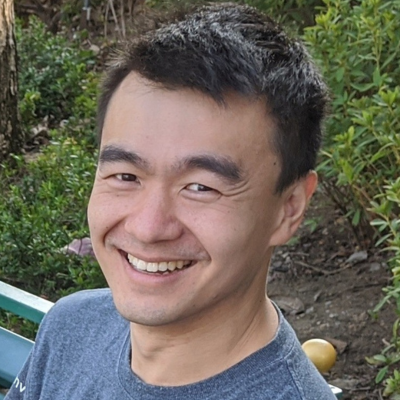
Danny is a molecular biologist by training, programmer by night, researcher and academic developer by day, and educator at heart. A multiple international and national teaching award winner, he works at the confluence of artificial intelligence, learning analytics, student engagement, educational technology, and professional development and leadership. He is a Professor of Educational Technologies in the DVC Education Portfolio at the University of Sydney, co-chairs the University's AI in Education working group, and leads the Cogniti.ai initiative that puts educators in the driver's seat of AI.
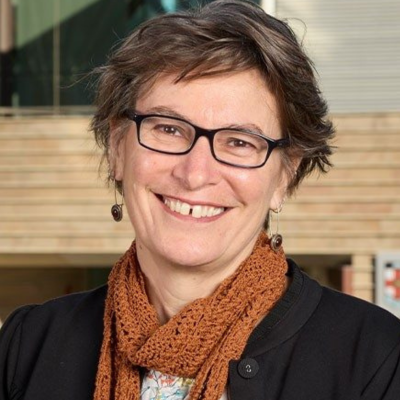
Professor Sarah Maddison is the Deputy Vice-Chancellor (Education & Student Experience) at the University of New South Wales. The Division includes Future Student, Registrar & Student Services, and Education & Student Experience.
Sarah has worked in Higher Education for 25 years, with 10 years of senior leadership experience, including Department Chair, School Dean, Faculty Executive Dean, Pro-Vice Chancellor, and most recently Deputy Vice-Chancellor (Education, Experience & Employability) at Swinburne University of Technology.
A champion of innovation in learning and teaching and research-informed practice, Sarah has led her team to win a prestigious Australian government Office of Learning & Teaching Citation and an Open Universities Australia NOVA award for innovation in online learning to build student agency and digital communities. She has been invited to numerous national and international panels on topics including the use of learning analytics to support student retention, learning ecosystems to support borderless education, and pedagogyand learning spaces.
Past roles have included chair of the Women in Astronomy Chapter of the Astronomical Society of Australia, the International Astronomical Union Working Group for Women in Astronomy, and the CSIRO Australia Telescope Time Assignment Committee, and member of the SmartSat Cooperative Research Centre’s Education College, Council of the Deans of Science, Square Kilometre Array Cradle of Life Working Group, Editorial Advisory Board of the Publications of the Astronomy Society of Australia, and Australian Research Council College of Experts.
Sarah’s research area of astrophysics focuses on planet formation, which she explores both observationally and numerically using the world’s largest radio telescopes and supercomputers.

Session: Enhancing higher education outcomes through personalised learning with generative AI
Selene Martinez Pacheco is a dedicated advocate for lifelong learning and social justice, committed to creating inclusive, human-centred learning experiences at Torrens University. With a strong belief in technology’s power to democratise education, Selene designs impactful projects that enhance accessibility and equity in learning. She is currently leading discussions on the integration of artificial intelligence in education across SEI in Australia, New Zealand, and the US, exploring its potential to transform teaching and learning practices.
A resilient and strategic thinker, Selene continuously seeks innovative approaches to advance education, supporting Torrens University's mission to “Be Good” and make a meaningful difference in both the organisation and the wider community.
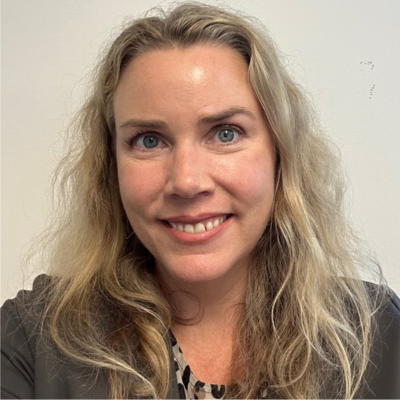
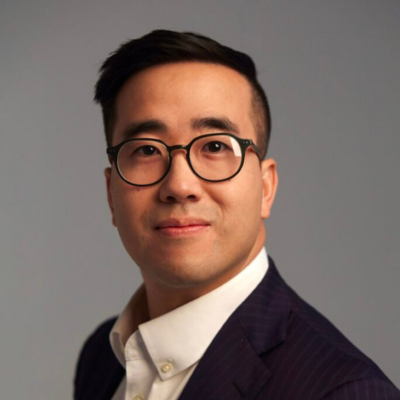
James was the Australian Head of a major international law firm’s Digital Law practice and a founding member of an international law firm’s market-leading restructuring practice.
James leads Stirling & Rose’s finance and restructuring practice, with significant local and global experience in high complexity ‘first of their kind’ transactions with a cross-jurisdictional focus, working in New York, Tokyo and Sydney.
James advises major companies, funds, investors, financial institutions and blockchain platforms, specialising in Smart Legal Contracts, CBDCs, DeFi, digital investments and novel financings.
James specialises in smart legal contracts, CBDCs and digital investments and financing.
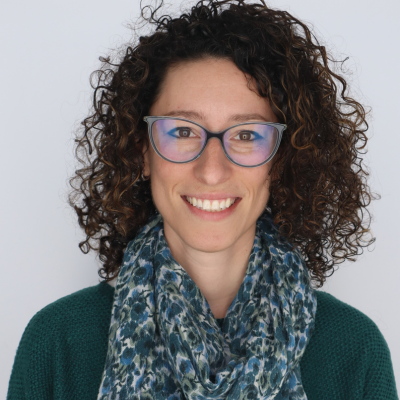
Amanda is a passionate educator with 10+ years of experience, dedicated to creating learning environments where high-quality pedagogy is enabled by technology, not driven by it. Grounded in the belief that technology should only be used when it serves the learning, she focuses integrating AI into learning and efficiency practices across the workplace, ensuring that technology serves as a catalyst for meaningful educational change.
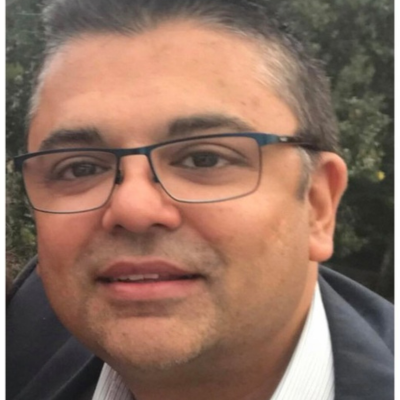
Dinesh Poorun is a senior leader with over 20 years of expertise in adult learning strategy, spanning the Academic, Vocational, Government, corporate, and non-profit sectors. Known for his strengths in project and change management, Dinesh leads high-performing teams committed to continuous improvement and systemic change. His passion for responsible, human-centred AI and emerging technologies drives his innovative approach to enhancing adult education.
Dinesh has a proven record of developing capability frameworks to meet national and global demands, addressing critical skill shortages in tech. A dedicated advocate for diversity, equity, and inclusion, he designs transformative, learner-centred training programs, ensuring underrepresented communities gain access to education, employment coaching, and pastoral support. His areas of expertise include strategic leadership, driving innovation, and regional capability building, with an exceptional track record in exceeding performance metrics as a leader, educator, and change agent.

Professor Alphia Possamai-Inesedy commenced as Pro Vice Chancellor of Engagement and Advancement in June 2021. Alphia is a Professor of Sociology at Western Sydney University, President of the Australian Sociological Association, outgoing Chair, Academic Senate and Director of Sydney City Campus WSU.
Alphia is responsible for leading strategic engagement work to shape the University’s commitment to co-producing solutions to the interconnected challenges facing society within and outside of the Western Sydney Region.
Her recent work includes: The Digital Social: Religion and Belief (deGruyter) and an edited volume on Health sociology (Pearson). Alphia is currently involved in ongoing research that focuses on higher education, risk society, religion, digital sociology and methodologies.
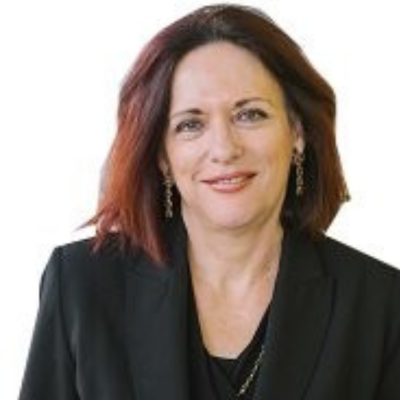
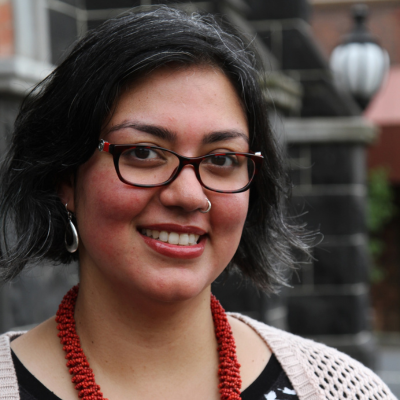
Session: Roundtable 4: Generative AI and the future of university teaching
Dr Suneeti Rekhari has extensive experience in the Australian tertiary education sector, leading quality, contemporary approaches to learning and teaching, and building teacher capability. In recognition of her global leadership in these fields, she is a Principal Fellow of the Higher Education Academy. She is currently Director Educational Quality at TAFE NSW, responsible for a large and diverse team, with a complex strategic and regulatory portfolio.
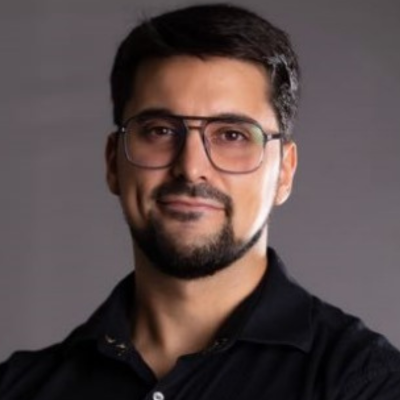
Session: Using big data to revolutionise education and drive better student outcomes
Session: Roundtable 5: Generative AI in assessments: Rethinking exams and evaluations
Dr. Raul Villamarin Rodriguez, Vice President of Woxsen University, is a distinguished Cognitive Technologist and Adjunct Professor at Universidad del Externado, Colombia. He serves as a member of the International Advisory Board at IBS Ranepa, Russian Federation, and holds positions on the Advisory Boards of PUCPR, Johannesburg Business School, SA, Milpark Business School, South Africa, PetThinQ Inc, and SpaceBasic, Inc. Additionally, Dr. Rodriguez is a Visiting Professor at Uni. del Rosario and an Expert at UNESCO.
As a Steering Committee Member for the Annual Conference at EFMD Global, Dr. Raul is deeply involved in shaping the future of education. He is honored with a scholarship in his name at ZIBS, China, and represents India in the PRME i5 Expert Pedagogy Group. Further, he holds two prestigious titles: Steven Pinker Professor of Cognitive Psychology and Classavo Chair Professorship in Integrative Research and Digital Learning.
Dr. Rodriguez specializes in the convergence of cognitive psychology with cutting-edge technologies such as Machine Learning, Deep Learning, Natural Language Processing, Computer Vision, Robotic Process Automation, Multi-agent Systems, Knowledge Engineering, and Quantum Artificial Intelligence. Registered as an expert in Artificial Intelligence, Intelligent Systems, and Multi-agent Systems at the European Commission, he has been nominated for the Forbes 30 Under 30 Europe 2020 list and recognized as a Europe India 40 under 40 Leader.
A sought-after keynote speaker and panel moderator, Dr. Raul contributes significantly to national and international conferences, including the ML Conference (Singapore). He actively participates in the ETS Business School Advisory Council (BSAC) in India and the Institute for Robotics Process Automation & Artificial Intelligence. Committed to responsible research, he aligns his efforts with RRBM, GRLI, and PRME.
Dr. Rodriguez's influence extends to the literary realm, co-authoring reference books in Psychology and Human-Tech interface available in Taylor and Francis and IGI Global. As a weekly contributing writer to various magazines focusing on analytics and emerging technologies, he continues to shape the discourse in these fields.

Session: PANEL DISCUSSION: How can generative AI be used to a better future of lifelong learning?
David Sadler was appointed to The University of Notre Dame Australia as the Deputy Vice Chancellor Academic in April 2024. Previously he was the Deputy Vice-Chancellor (Education) at the University of Western Australia (UWA) from 2017-2024 and Deputy Vice-Chancellor (Students and Education) at the University of Tasmania (UTAS) from 2011 to 2017. David has led many initiatives around physical and digital infrastructure for education, student experience, curriculum renewal, sustainability and especially the educational attainment agenda, leading the Children’s Universities in Western Australia and Tasmania, which is now also operating in Western Australia.
David is a Principal Fellow of AdvanceHE (PFHEA). He is currently Chair of Universities Australia DVC A Executive and leads UA’s work on academic integrity; teaching recognition and stakeholder relationships with TEQSA. David is also Chair of the Australian Awards (Program Awards) for University Teaching.
In the UK, David was Director (Networks) for the Higher Education Academy and previously Director of the Centre for Sociology, Anthropology and Politics (CSAP) at the University of Birmingham. David is a UK National Teaching Fellow (2005). David’s academic specialism is in crisis decision-making in international security and he worked for the UK Foreign and Commonwealth Office as a Senior Research Officer in Arms Control and Disarmament from 1988-1992, embracing many aspects of the end of the Cold War.
David is a life fellow of the RSA and a former Council member of the Australian Institute of Company Directors (AICD).

Miriam Scott is a digital education specialist with a strong focus on change management, dedicated to enhancing accessible learning tools for educators and students. She has spearheaded projects like the AI for Educators resource page at scottybreaksitdown.com, the Digital Access Pass (DAP) program, and is the creator and administrator of the QLD Senior Business Teachers Group. Miriam's innovative approach extends to social media with her Instagram study tool, @scottybreaksitdown, providing resources that empower both teachers and students to thrive in digital learning environments.

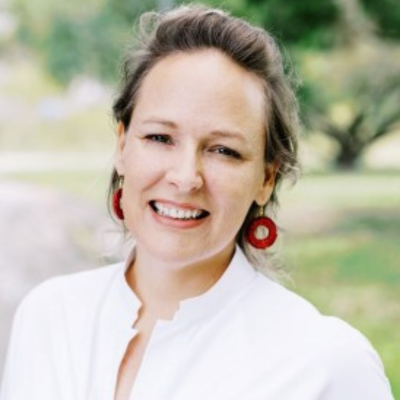

Associate Professor Kathleen Tait’s expertise in the field of tertiary education stems from 30 years practical, administrative and consultative experience in the United Kingdom, Brunei Darussalam, Hong Kong SAR and Australia. Kathleen has a strong history of working in cross-cultural research projects in East Asian countries (Mainland China and Japan) as well as South-East Asian countries (e.g.,Brunei Darussalam, Singapore and Vietnam) . This international experience has provided her with an extensive appreciation of the complexities of working with diverse cultures and diverse religions (e.g., the Islamic, Hindu and Buddhist faiths).
Kathleen has over 100 publications; received five tertiary Excellence in Teaching Awards and has successfully supervised 25 Master and PhD students. Over the course of her career, she has recevied research funding of $2-million - including recent Australian Government funding of $440,500 in an ARC Discovery project.
Kathleen enjoys work environments where there is a strong focus on collegial team approaches with particular reference to projects supporting student complex communication disorders and improving the quality of life of families raising a child with disability.
In addition to her educational qualifications, Kathleen has post graduate psychology qualifications in Applied Behaviour Analysis, Higher Degree Education and is a registered graduate psychologist with the British Psychological Society.

Session: The dangers of deepfake AI in an educational setting
Jake Turnbull is a seasoned educator with 20 years of teaching experience across international and Australian schools, currently serving as Digital Learning Leader at Pymble Ladies' College. Known for his enthusiasm for educational technology, Jake integrates digital tools to create engaging and enjoyable learning experiences. His teaching philosophy centres on inclusivity, recognising and supporting the unique needs and learning styles of students from diverse backgrounds. Committed to professional growth, Jake continually pursues development opportunities to stay at the forefront of educational technology. His goal is to inspire and empower students through innovative, dynamic teaching practices.
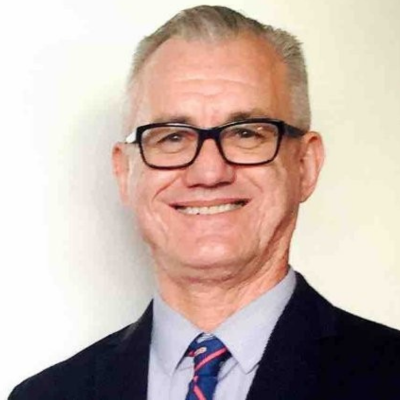
Steve Uscinski leads the team of the Studies Directorate and oversees the academic program of the School. In his more than 25 years at BGS, Steve has given service as a teacher of English, coach of Rugby and Cricket, Director of the Senior Dramatic Production, Boarding Housemaster, school administrator and curriculum innovator and leader.
Steve has co-authored a series of English textbooks and is a regular presenter and commentor on educational issues.
Steve has played an integral role in the design and planning of the STEAM Precinct and has led the School’s transition from OP to QCE-ATAR system.

Session: Opening remarks from the Chair
Session: PANEL DISCUSSION: How can generative AI be used to a better future of lifelong learning?
Steven is Pro Vice-Chancellor (Education Innovation) at the University of Newcastle and an established leader in educational development, strategic curriculum management, quality assurance, policy development and digital transformation. He has provided the strategic vision and leadership through developing learning and teaching and digital education strategies for several major universities. He is nationally recognised as the current president of CAULLT (Council of Australian Leaders in Learning and Teaching) and maintains a strong international profile working with the University of London as a Fellow of CODE (Centre for Online and Distance Education).
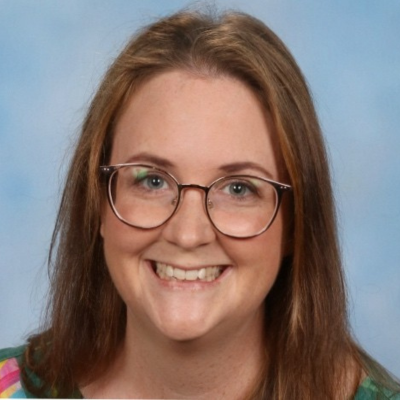
Georgia Wignall is a Senior Education Officer of Pedagogy and Curriculum at the Queensland Department of Education, MetroSouth region, where she brings over a decade of dedication to public education. Known for her collaborative and enthusiastic approach, Georgia excels in supporting schools to adopt a systematic, comprehensive approach to curriculum and pedagogy. Her role involves conducting curriculum assessments aligned with the P-12 Framework, working closely with school leaders and teachers to enhance curriculum, pedagogy, and assessment practices. She also evaluates the impact of strategies against Equity & Excellence priorities to plan next steps for student engagement and success. Currently, Georgia is undertaking a research project with the University of Queensland Learning Lab, examining student motivation to use AI in learning. This work aims to shape future assessment policies and create meaningful, engaging assessments. Georgia’s commitment to advancing educational practices reflects her passion for fostering positive and impactful learning experiences across Queensland.

